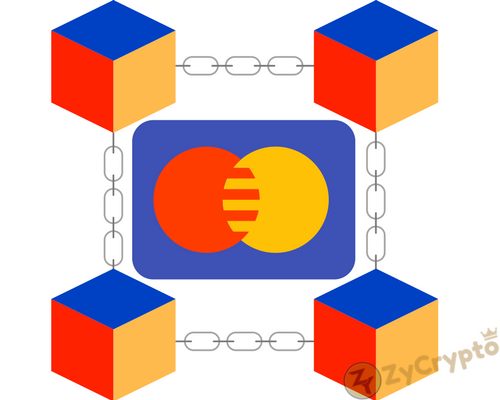Mastercard, a leading global financial service and technology company, has won a patent from the U.S. Patent and Trademark Office (USPTO) on Tuesday, marking a bold step in a quest to roll out a model that makes crypto payments a lot faster.
In a document published by the USPTO, Mastercard International Incorporated is said to be aware of the need ‘to improve on the storage and processing of transactions that utilize blockchain currencies’ and are set to build a description of systems and methods for managing fractional reserves of blockchain currency.
Because virtual currencies have “seen increased usage over traditional fiat currencies by consumers who value anonymity and security,” the approved patent admits that the wide disparity in payment processing times between the two classes of assets puts cryptocurrencies at a “disadvantage.”
Transactions on the bitcoin blockchain protocol, for instance, would usually require ten minutes before they are completed whereas fiat payment services such as that offered by Mastercard allow transactions to be completed in a few nanoseconds.
The firm believes that this significant difference in transaction times is the reason why many entities, particularly merchants, retailers, service providers, and other purveyors of goods and services, may be wary of accepting blockchain currency for products and participating in blockchain transactions.
A proposed solution by Mastercard would be to offer its users a new type of account that could transact cryptocurrencies even though it is pegged to a fiat currency. Such accounts will support faster crypto transactions and could provide real-time data on a user’s “fiat currency amount, a blockchain currency amount, an account identifier, as well as an address.”
This model of payments raises no security concerns, instead, the payment networks can evaluate the likelihood of fraud and assess risk for blockchain transactions using existing fraud and risk algorithms and information that is available to payment networks.
It is worth mentioning that now approved patent was filed over three years ago, on May 21, 2015, and will likely require a couple of new twists by the payments company if it hopes to meet the needs of the fast-evolving crypto space.
For one thing, new model cryptocurrencies have fast transaction processing time and would not require any intermediary for payments to be completed.
Mastercard Secure Approval To Speed Up Crypto Transactions
Advertisement






